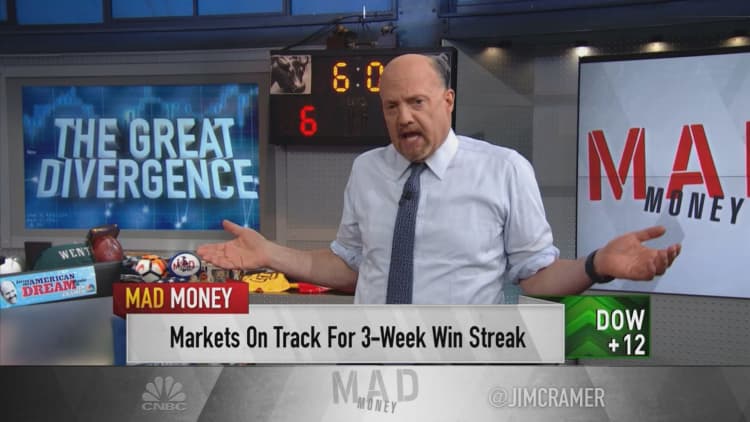

A massive transfer of wealth is underway.
“It’s started and it’s only going to accelerate,” said Liz Koehler, head of advisor engagement for BlackRock’s wealth advisory business.
Baby boomers are expected to pass on more than $68 trillion to their children. And yet, some millennials and Gen Z may not be inheriting as much as they think.
Recent reports show a growing disconnect between how much the next generation expects to receive from the “great wealth transfer” and how much their aging parents plan to leave them.
Learn more about personal finance:
Why your financial advisor may not be giving you the best advice
“Noisy budgeting” is having a moment
What you need to know before following TikTok’s advice
At this point, 68% of millennials and Gen Z have received or expect to receive an inheritance of nearly $320,000 on average, according to USA Today Blueprint. Additionally, 52% of millennials think they’ll get even more — at least $350,000 — according to a separate survey conducted by Alliant Credit Union.
However, 55% of baby boomers who plan to leave an inheritance said they would leave less than $250,000, Alliant found.
Additionally, only a third of white families and about one in 10 black families receive an inheritance, and more than half of those inheritances will be less than $50,000, according to a separate study. study by the Federal Reserve Bank of Boston.
Part of the reason for the gap is that “parents simply don’t communicate well with their adult children on financial topics,” said Isabel Barrow, director of financial planning at Edelman Financial Engines.
Faced with inflation, high health care costs and longer life expectancies, baby boomers may suddenly feel less secure about their financial situation – and less generous when it comes to giving money.
Overall, fewer Americans feel financially confident these days, according to a report from Edelman Financial Engines, and only 14% would consider themselves wealthy.
Millennials could be the ‘richest generation in history’
Yet over the next decade, this intergenerational transfer could make millennials “the wealthiest generation in history,” according to the annual wealth report from international real estate consultancy Knight Frank.
These funds come at a time when millennials and Generation Z are finding it harder to succeed on their own.
In addition to skyrocketing food and housing costs, today’s young adults face other financial challenges that their parents did not have at that age. Not only are their salaries lower than their parents’ when they were in their 20s and 30s, after adjusting for inflation, but they also have larger student loan balances, according to recent reports.
With so much at stake, “there’s so much missing that needs to be discussed with our adult children when it comes to what happens to our money,” Barrow said.
Baby Boomers Need to Make a Plan

At the same time, perceptions of inherited wealth are changing, according to BlackRock’s Koehler. Parents want to know that the next generation will have the same value system when it comes to wealth creation.
“Successful firms and advisors find ways to open the conversation to be clear and transparent and establish shared family values and expectations around philanthropic efforts,” she said.
The failure to create such a strategy is a major problem, according to the Edelman report: 90% of parents intend to leave an inheritance to their children, but 48% do not have a specific plan in place.
That makes it even more important to determine how that money will be passed along as well as exactly how much will change hands, Barrow said, in addition to discussing it as a family.
“It’s not just about what you get, but how you get it – it all needs to be part of an overall financial plan,” she said.
cnbc





